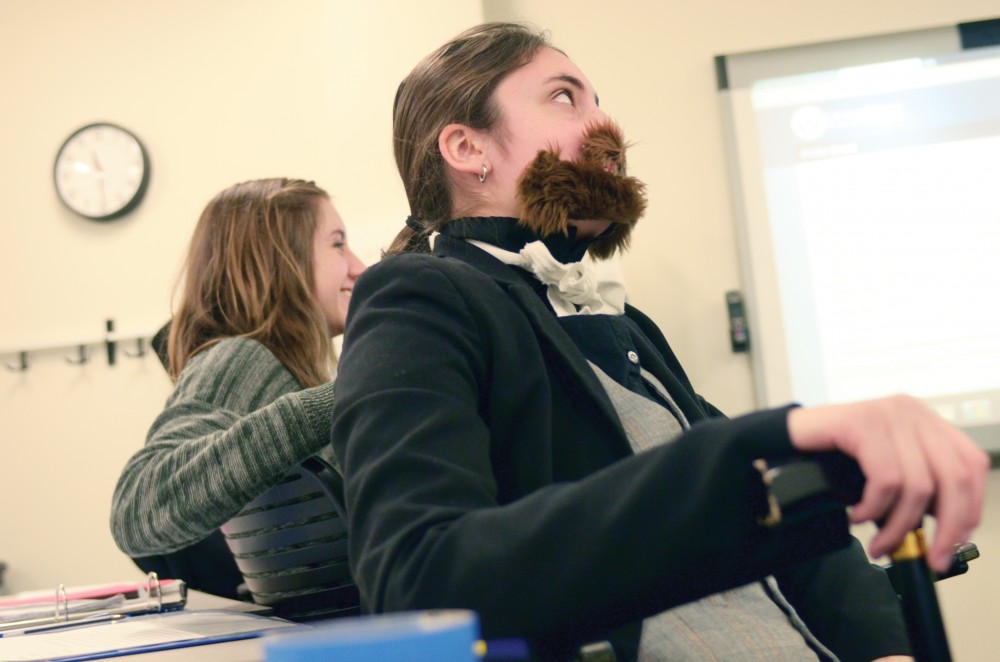Au revoir Grand Valley

GVL/Kevin Sielaff Rachel Felsenfeld role plays during her fellow student’s presentation.
Feb 10, 2014
It is 1889. The “Exposition Universelle” is going on in Paris as the Eiffel Tower is about to be erected. Only this time, it’s in a classroom.
In an Honors European Civilization course at Grand Valley State University, students are not just being taught history, they are reenacting it.
Students are immersed in various time periods throughout European history as they are given a character to act in a series of role-playing games. They experience historic moments ranging from the invention of democracy in ancient Athens, to Machiavelli and the Florentine Renaissance.
In this particular case, it’s the French Revolution. The name of the game is “Reacting to the Past.”
The pedagogy was created a decade ago by Mark Carnes, a history professor at Barnard College of Columbia University, and has since spread throughout the U.S. It is now used at more than 300 institutions in numerous disciplines.
The games juxtapose creative role-playing with traditional research and allow students to become fully immersed in the lesson. All Reacting to the Past games are based on educational objectives.
In order for students to fulfill their victory and essentially win the games, they must conduct library research on their role, give persuasive speeches, collaborate, and most importantly, think creatively.
GVSU freshman Evan Wallace finds Reacting to the Past an innovative lesson and enjoys the process.
“I learn a lot and at the same time I get to act like I’m someone else,” Wallace said. “You get a role sheet and character, and you try to become the actual character in class. As far as the prize at the end of the game, you definitely get a better grade the better you play.”
The atypical learning experience was pioneered at GVSU by history professor Gretchen Galbraith. The class is team-taught by Galbraith, professor and art historian Ellen Adams, and French professor David Eick.
In these games, Adams and Eick are not just regular professors; they also take on a role. Adams serves the role of the “Game Master” for this particular “Art in Paris” game.
“It is a way for students to experience the art of the French Revolution at this time in France,” Adams said. “Their responses to an art exhibition are ultimately debating the future of art in Paris, right as the Eiffel Tower is going to go up.”
Students play the roles of famous French artists such as Claude Monet, Georges Seurat and Gustave Moreau.
As the students proverbially play, the professors monitor.
“We’re kind of coaches and referees,” Eick said. “Students become so engaged in the game they exceed our expectations.”
The game has been highly supported by Jeff Chamberlain, director of the Honors College, and has also received support from the Pew Faculty Teaching and Learning Center, the department of modern languages and literatures and the history department.






















